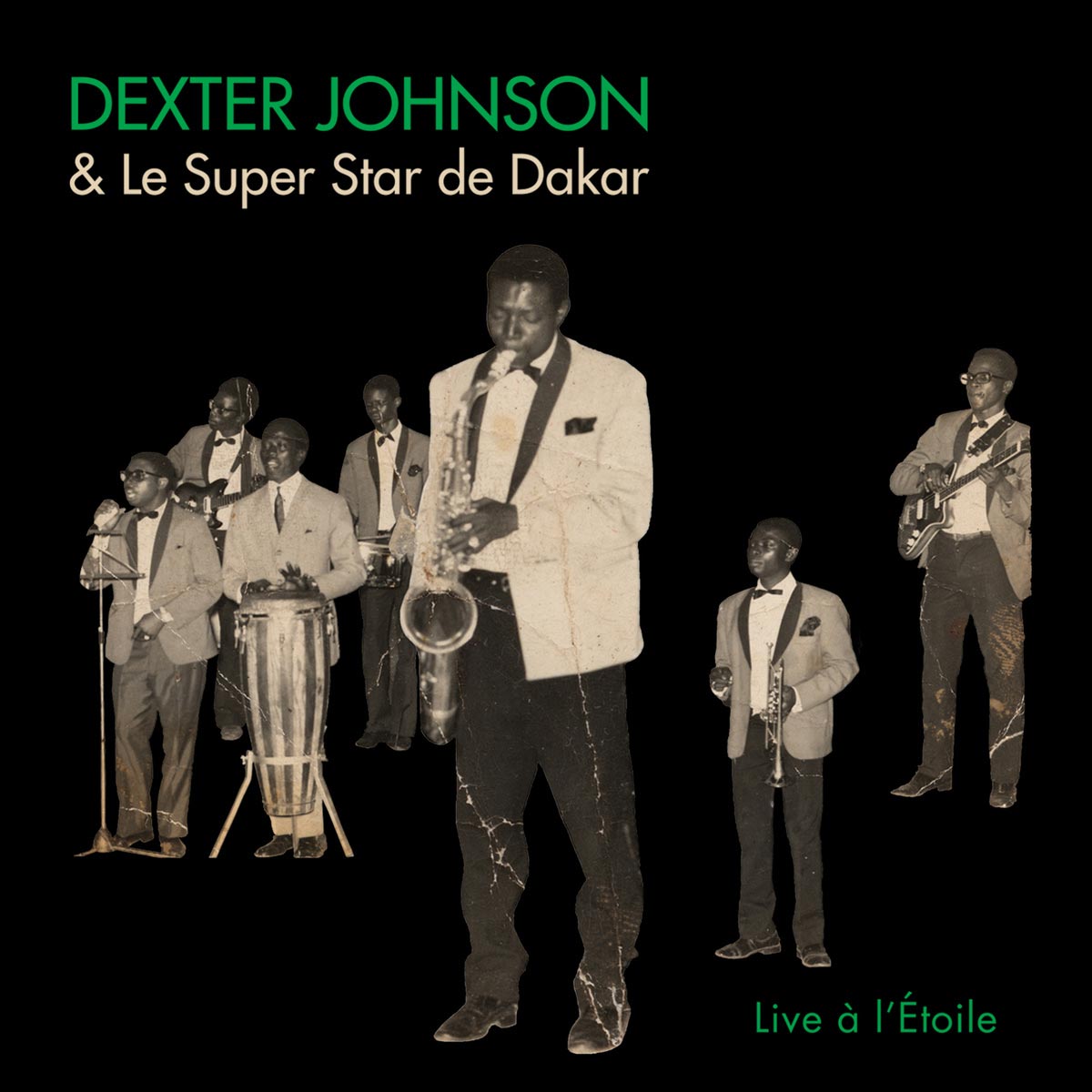
It’s a shame Dexter Johnson remains relatively unknown outside of Africa. The distinguished saxophonist, born in Nigeria and established in Senegal, became a leading figure in West African music through the 1950s until 1981, when he passed away at the age of 49. After leaving Nigeria, Johnson spent time in Bamako, which served as a great meeting place for musicians in Mali. While there, he rubbed elbows with the likes of Barro Ndiaye, Joseph Mambaye and a number of musicians from Senegal.
Johnson arrived in Dakar in 1957. He became close with many club owners who wanted him to perform at their venues. The proprietor of the Shanghai bar brought him down from Bamako and had Johnson playing a gig the night he rolled into town. He moved from club to club, building his stature every step of the way.
While playing at the Moulin Rouge, Ibra Kasse (owner of the Miami bar) approached Johnson with an offer to play at his place. He accepted and joined the Star Band de Dakar, which partnered him with Mady Konate and Amara Toure. The band established themselves at the Miami bar and eventually traveled to Banjul, where they recruited Laba Sosseh.
After a few years Johnson left the Star Band de Dakar and formed a rival group, the Super Star de Dakar. Both groups were loaded with extraordinary talent and inspired natural competition between the two camps. Super Star de Dakar began playing at l’Étoile every night and drew large crowds. Laba left the group to travel to Abidjan and Johnson later followed, but not before becoming the proper front-man of Super Star de Dakar.
While Dexter Johnson & Le Super Star de Dakar never committed any notes to a full-length studio LP, a venue owner in Thiès traveled to Dakar and recorded the group so he could capture the integrity of the band for all of his club patrons to hear. Thankfully for listeners, Senegal’s Teranga Beat acquired the tapes and have released them as a 2LP/CD set entitled Live à l’Étoile.
This special live recording captures Dexter Johnson & Le Super Star de Dakar in all of their glory. The sound is quite remarkable considering this was recorded before the band departed for Abidjan in 1969. While Laba Sosseh had left the group by this time, Johnson is joined by John Gomis, along with William & Maïssa Ngom, who handle the vocals well. Johnson’s tenor saxophone also functions as a lead vocalist at times, improvising phrases over repeated backing vocals with a warm and tender tone, slightly husky and full of vibrato.
The saxophone is pushed to the front of the mix along with the vocalists, which allows the electric guitar to sit in the background slightly. The effect is ethereal as the open air acoustics intensify the instrument in the best way possible. The drum kit and percussion also settle into the groove, giving everything plenty of space while remaining tight and compact.
The album opens with the slow, steady “Angelitos Negros,” a tender ballad that introduces Johnson’s delicate approach. His persuasive style bleeds passion, caressing every note he blows. In contrast, “Soy Hijo del Siboney” reveals a heartier, more attacking style with a playful side. “Borinquen Tropical” digs in deep and is arguably the strongest cut on Live à l’Étoile. This fantastic number refuses to quit and combines group harmony vocals with some excellent lead, courtesy of Johnson. The steady, repeated chorus provides the perfect platform for the saxophone to take control.
Dexter Johnson & Le Super Star de Dakar’s Afro-Cuban sound is authentic and creative. The group can tear your heart out and get you dancing in a flash. Always adaptable, the band even includes an impressive cover of Wilson Pickett’s “Something You Got” in their repertoire, showcasing their caliber as a soul outfit.
Live à l’Étoile is a standout live recording made even more impressive by the fact that this band never recorded a full-length album together in the studio. This treasure is a must-have and should be experienced on vinyl as the LP adds “Cienfuegos Tiene Su Cuaguanco” as a bonus track.




Fantastic review! I got to know of him in a book I am reading now.